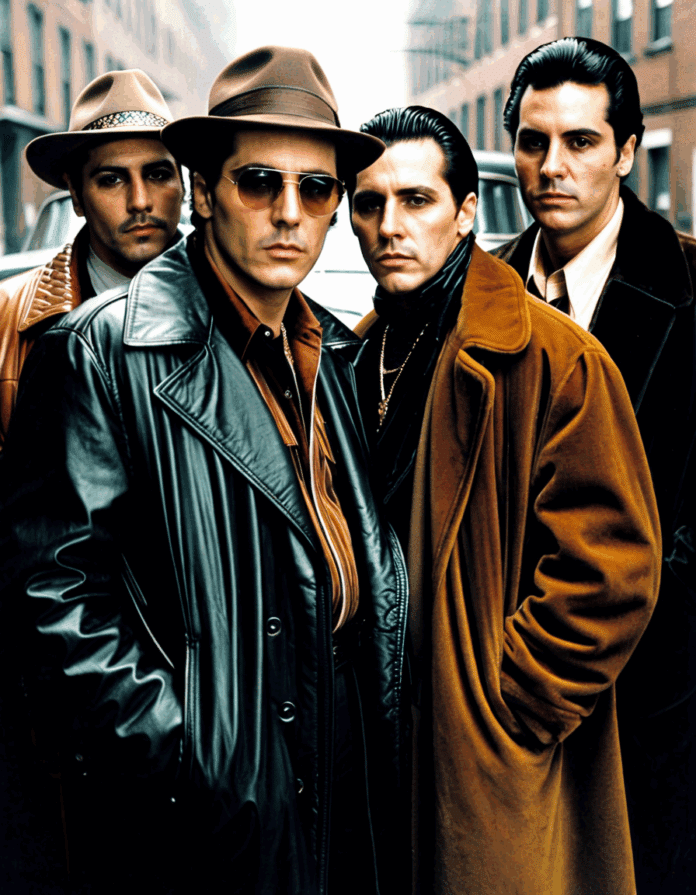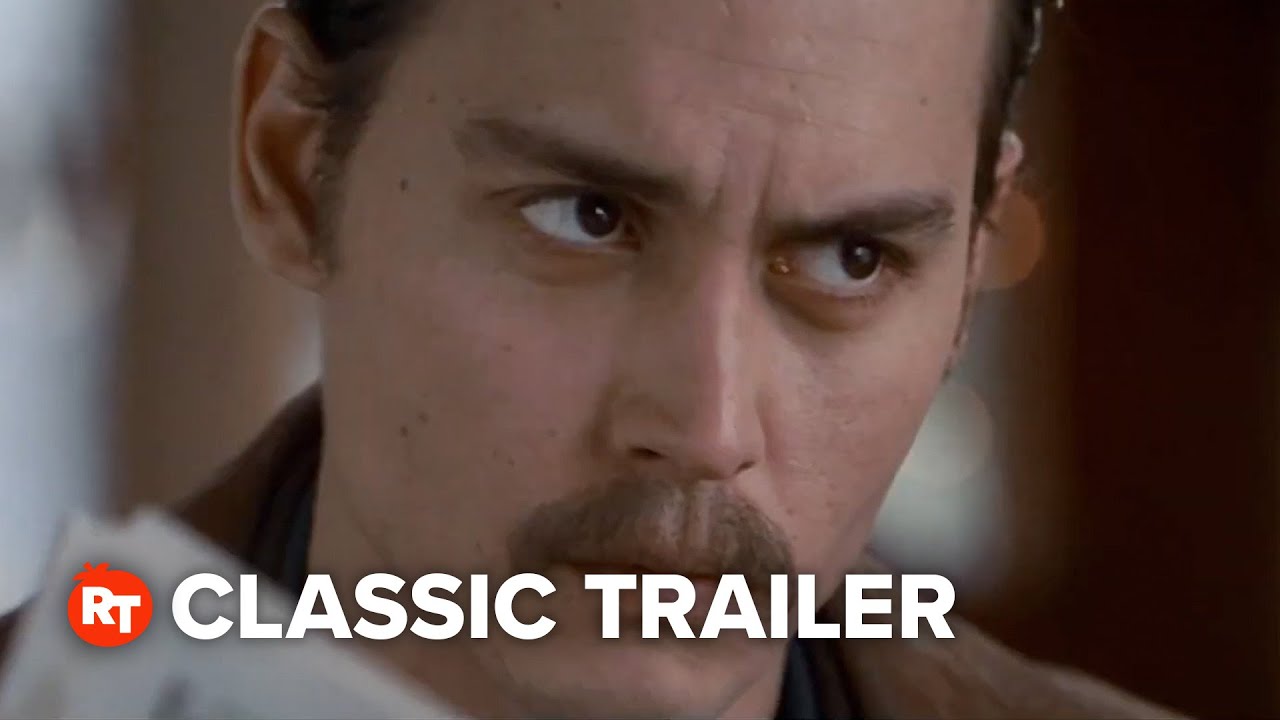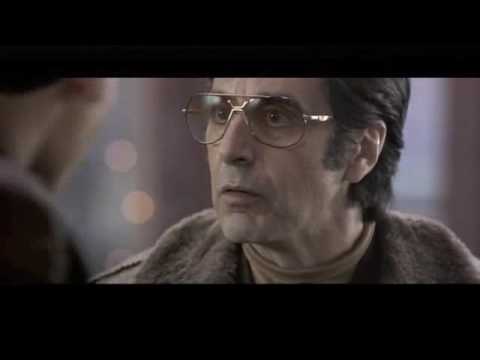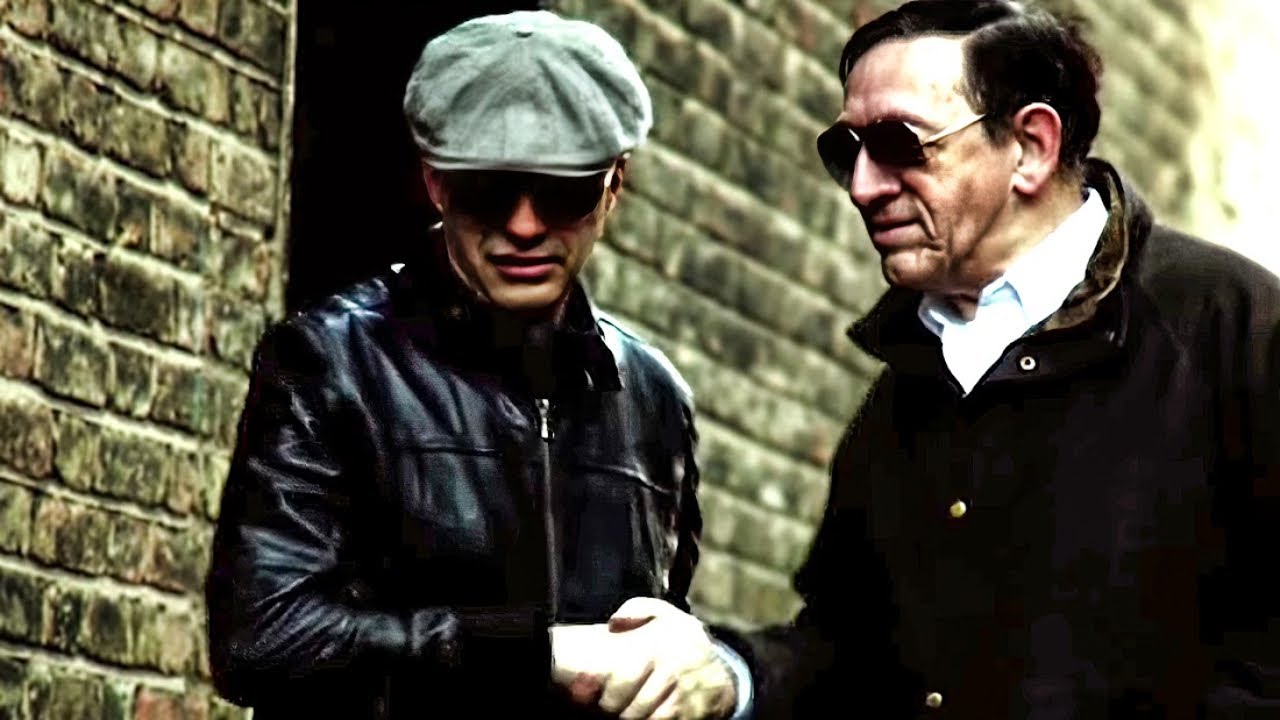In the late 1970s, the shadows of organized crime loomed large over American society. Enter Donnie Brasco, born Joseph D. Pistone, an undercover FBI agent tasked with infiltrating the Mafia—a world rife with loyalty, secrecy, and danger. With the code name “Donnie Brasco,” Pistone faced a daunting mission that stretched over six perilous years. Law enforcement struggled to penetrate the Mafia’s code of silence, making this operation crucial in the fight against crime. The urgency for credible intelligence had never been higher, and Pistone’s journey would prove both devastating and transformative.
The Origins of Donnie Brasco’s Undercover Mission
Pistone’s career as an undercover agent didn’t begin overnight. The FBI had recognized that traditional surveillance was not enough to tackle the rampant organized crime increasingly plaguing American cities. As someone who had already shown exceptional skill in handling high-stakes operations, Pistone received the nod. He stepped into a dangerous and covert existence where trust was currency, and betrayal was a daily threat.
Initially, Pistone immersed himself in the culture, pursuing opportunities to build credibility. He adopted the persona of a jeweler, which allowed him to connect with mobsters who frequented the diamond district. This backstory was essential; a jeweler wouldn’t raise suspicions in the company of criminals. In doing so, Pistone entered a world where he had to navigate the intricate web of relationships while simultaneously providing the FBI with actionable intelligence.
The stakes only grew as he mingled with some of the toughest mobsters on the East Coast. With the Mafia operating largely under a veil of secrecy, the success of the mission hinged on Pistone’s ability to blend in. His experiences highlighted not only the Mafia’s ruthlessness but also the importance of information to law enforcement—a game of cat and mouse that ultimately paved the way for significant breakthroughs against organized crime.
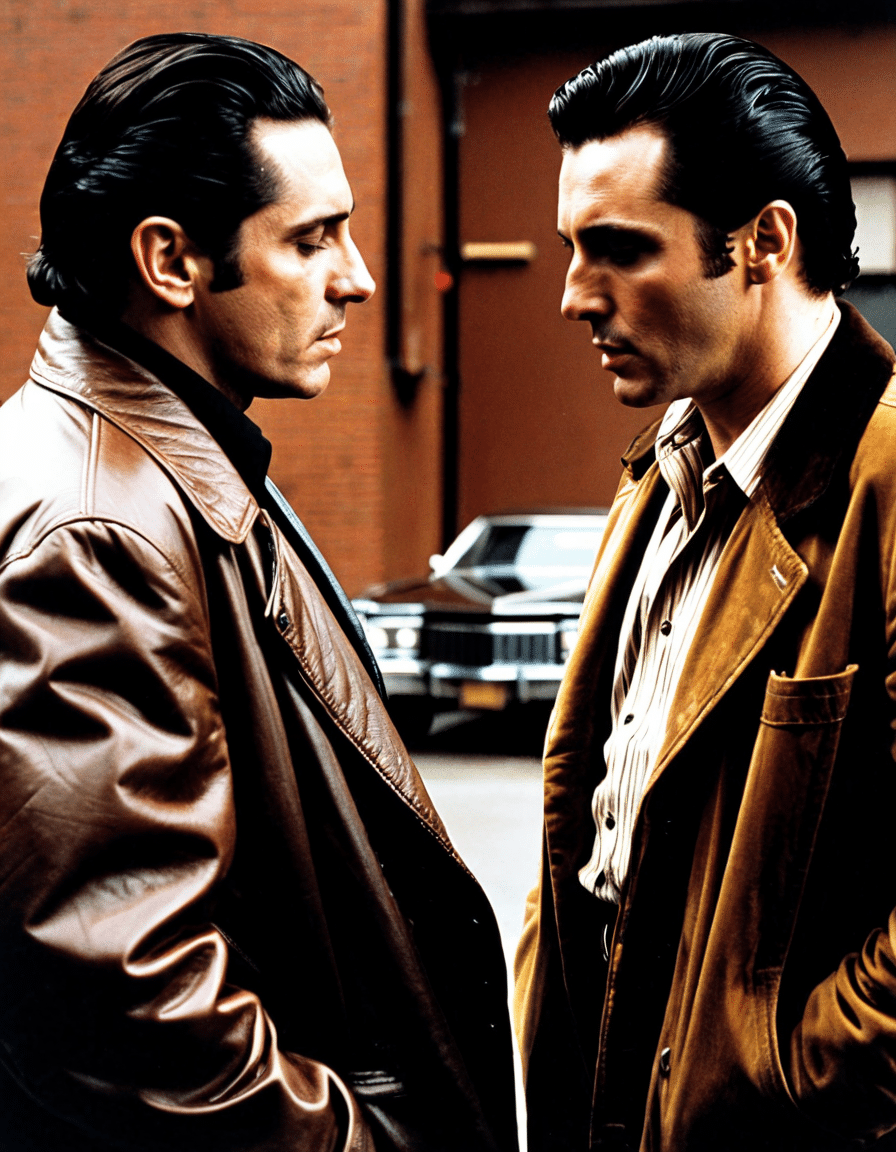
Top 5 Moments That Defined Donnie Brasco’s Legacy
Donnie Brasco and His Influence on Modern Media
Donnie Brasco’s gripping story hasn’t gone unnoticed. The narrative has inspired films, documentaries, and countless articles, each attempting to capture the essence of this dangerous world. The movie adaptation featuring Johnny Depp as Donnie Brasco and Al Pacino as Lefty Ruggiero brought broader awareness not just to the Mafia but also to the ethical dilemmas inherent in undercover law enforcement.
The film raised critical questions surrounding morality versus duty. Was Pistone justified in deceiving those he pretended to trust? How far should one go to serve justice? For many viewers, these queries linger like shadows long after the credits roll. The gripping portrayal of Donnie’s struggles ensures the conversation about heroism and villainy goes on amidst applause and critique.
Moreover, modern media’s interpretation of the story highlights the nuanced human experience behind the badge. Discussions extend to empathy for operatives like Pistone, who exist in a gray area where the lines of loyalty and betrayal blur. This multifaceted account underscores how much further Donnie’s story has gone—beyond entertainment to spark dialogues in society today.
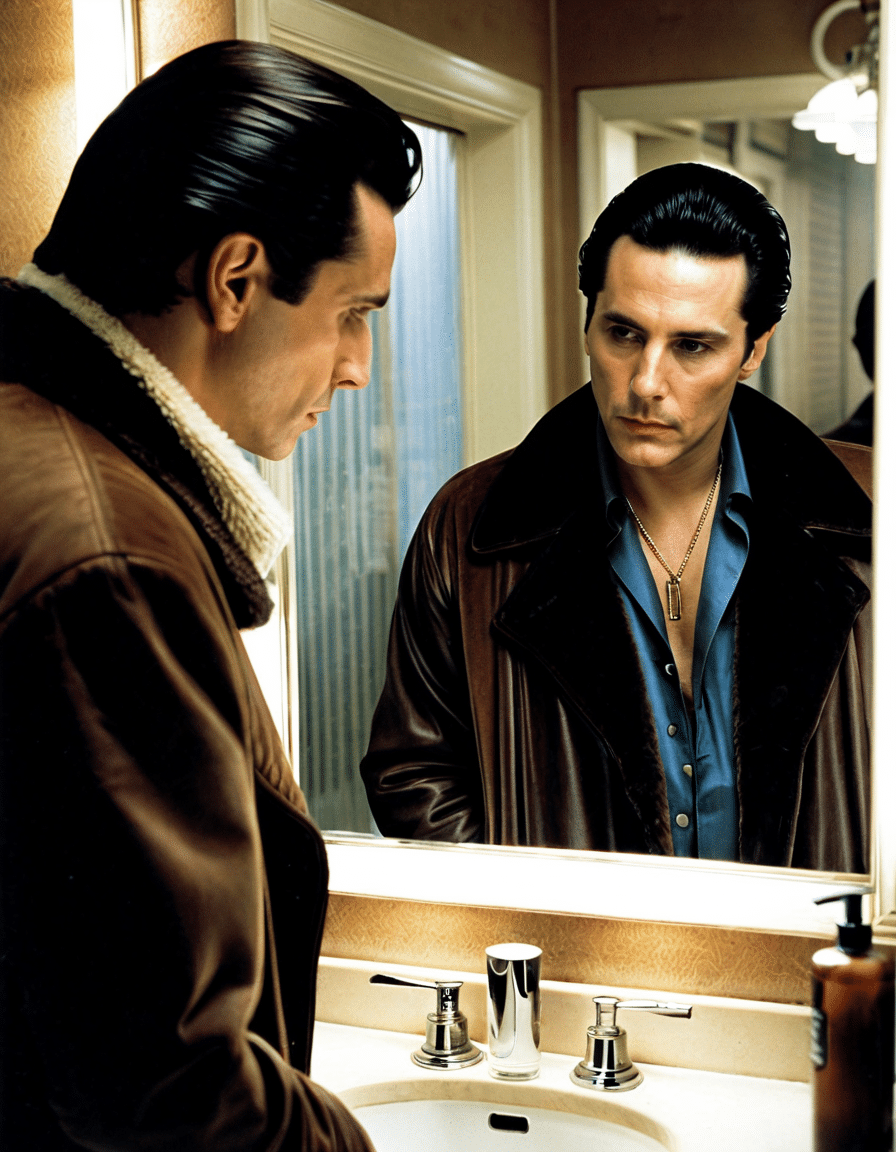
The Freddy Krueger Effect: The Real Terror Behind the Scenes
Just like Freddy Krueger, the iconic villain from “A Nightmare on Elm Street,” Donnie Brasco lived a life filled with nightmares of his own. While Krueger haunted dreams, Pistone’s real-life terror was rooted in betrayal and the relentless shadow of impending danger. He faced emotional turmoil arising from his secret life, often questioning his identity and where his loyalties lay.
Living undercover required balancing acts that took their toll on his mental health. Unlike horror characters trapped by their adversities, Pistone’s challenges were real and consequential. The duality of being both predator and prey created unresolved tension, often resulting in existential despair.
The psychological aspect of Donnie’s work emphasized the heavy burden of his dual existence. Just as Krueger embodied the idea that terror could lurk behind familiar faces, so too did Pistone encounter his own brand of horror among those he called friends. These intricate nuances elevate the understanding of undercover work from mere job description to a profound exploration of the human experience.
The Evolution of Undercover Work Post-Donnie Brasco
The implications of Donnie Brasco’s operation can still be felt in how undercover work is conducted today. His experiences have reshaped the FBI’s approach to tackling organized crime, setting a precedent for newer technologies and techniques. Surveillance systems, digital communication, and analytical methodologies have evolved significantly, allowing authorities to cast a wider net while minimizing risks.
The lessons learned from Donnie’s undercover mission encapsulate the thin line law enforcement officers walk. Advances in technology enable better-informed decisions but also raise ethical concerns regarding privacy and operational transparency. The ongoing evolution in strategies indicates that while the game has changed, the need for ethically grounded practices remains as essential as ever.
In consideration of these shifts, law enforcement agencies have focused more on nuanced approaches that also include community engagement. The art of undercover work has changed, employing more strategic considerations and ensuring that new recruits are not just trained in deception but also in understanding the minimization of societal impact.
Tailoring the Narrative: The Ongoing Relevance of Donnie Brasco
Examining Donnie Brasco’s life and impact reveals a rich narrative that speaks to essential themes of human connectivity and ethics. The ethical dilemmas presented in his story spur ongoing discussions about the lengths to which one might go for justice. This exploration prompts contemplation of where lines are drawn in the pursuit of truth, especially in a world where organized crime continues to adapt.
As society wrestles with concepts of loyalty and betrayal, Donnie’s journey remains a relevant touchstone. His experiences echo through discussions about the moral implications of deception and the justifications for extraordinary measures in law enforcement. The complexity of his story invites us to look beyond conventional definitions of heroism and villainy, ultimately fostering a deeper appreciation for the intricate dance between good and evil.
In a world where crime continually evolves, the narrative of Donnie Brasco endures. The battle between right and wrong is timeless, and the conversations stemming from his story are likely to endure, compelling audiences to examine their own interpretations of justice and morality.
For those debating the enigma that is Donnie Brasco, the reflections leave us contemplative—what sacrifices are we willing to make for the greater good? The story isn’t just about a man living in disguise; it’s about the intricate web of choices that define not only his fate but the reality of law enforcement itself.
Donnie Brasco: The True Story of a Legendary Undercover Agent
The Man Behind the Legend
Did you know that Donnie Brasco is actually the alias of Joseph D. Pistone, an undercover FBI agent who infiltrated the mob during the late 1970s and early ‘80s? His undercover work led to over 100 convictions, transforming how law enforcement tackled organized crime. It’s a bit like when a silent hero steps up, reminiscent of characters like those in the Silent Hill 2 Remake, where hidden truths come to light with real consequences. Pistone’s story was so compelling that it inspired the 1997 film featuring Al Pacino and Johnny Depp.
Intriguing Connections
What’s really fascinating is how Donnie Brasco solidified the bond between crime and loyalty. His undercover work meant forming genuine friendships, which left him torn when it came time to report back. It’s not unlike the complexities some celebrities face, like Maggie Gyllenhaal, who often navigates the fine line between personal life and public persona. In many ways, Pistone’s life as Donnie can serve as a reminder of sacrifice, similar to athletes like Travis Kelce, who balance their professional careers while tackling personal challenges, just like the whirlwind surrounding Taylor Swift and Travis Kelce.
Pop Culture and Legacy
Donnie Brasco’s story has influenced various media, including television and movies, making him a pop culture icon. For instance, his influence echoes in superhero mashups such as the Cast of Spider-Man No Way Home, where characters live dual lives. Additionally, the gripping tales of undercover agents have led to a growing interest in true crime stories across different platforms, engaging audiences in an ever-growing landscape akin to the JJK Viz series or even the latest buzz around Keegan Murray stats as sports fans analyze player performance. It’s amazing how interconnected our modern stories can be, much like how the legendary blue weimaraner dogs appear in various lifestyles, bringing unique narratives to life. Donnie Brasco is a prime example of why some stories resonate on so many levels, making for a legacy never to be forgotten.


